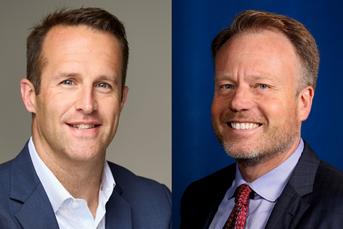Remote workers more likely to open managed accounts: Morningstar

The Morningstar study examined saving, investing and wealth differences between typical in-office employees and remote workers. The latter tend to be older and more highly compensated, both of which correlate with different investing habits.
A shift toward remote work arrangements could have consequences for defined-contribution plans, and more savers will potentially be interested in managed accounts and other services, according to a recent study.
A paper published today by Morningstar examined saving, investing and wealth differences between typical in-office employees and remote workers. Remote workers tend to be older and more highly compensated, both of which correlate with different investing habits.
People who work remotely regardless of the COVID-19 pandemic — those who live in states in which their employers are not based, for example — are about one third more likely to opt for managed account services within their DC plan, Morningstar found.
The Chicago-based research firm, itself a managed account provider, examined data from 39 401(k) plans, representing more than 115,000 participants, about 2,500 of which it identified as remote workers.
“This was kind of a unique perspective … It’s an interesting angle into what the future could look like,” said Dan Bruns, head of managed solutions at Morningstar Investment Management.
Morningstar predicts that there will be a 33% increase in the amount of people who work remotely this year, compared to the number before the pandemic. By 2025, it estimates that 22% of the U.S. workforce will be working remotely at least part time, an increase from 13% seen in 2019. That is similar to an estimate published last month by remote-worker marketplace firm Upwork, which projected that more than 36 million people in the U.S. will work remotely by 2025, reflecting an increase of 87% over the pre-COVID-19 amount.
The types of jobs that lend themselves to remote work are often different from those requiring an employee to be physically present, which accounts for some of the variation in use of managed accounts, Bruns said.
On average, remote workers are older, at 46.1 years, and have a tenure of 6.15 years with a company, compared with an age of 42.5 years and tenure of 6.87 years among local workers. Remote workers also have considerably higher average income, at more than $115,000, compared with $87,000 among local workers in the study. Retirement account balances were $131,000 among remote workers, compared with an average of about $99,000 for local employees. Remote workers contributed an average of 10.65% of their pay to 401(k)s, while locals deferred 8.92%, according to Morningstar.
Locally based employees were more likely to be invested in a plan’s target-date funds, at 60.7% of workers, compared with 53.3% of remote workers. Meanwhile, about 5.3% of remote workers opted for managed accounts, higher than roughly 4% of local workers, the report found.
The difference in use of managed accounts could also be attributable to higher use of financial advice in general among remote workers.
“People who use managed accounts are typically those who are on the cusp of or are using advice services out-of-plan,” Bruns said.
The use of managed accounts also varies between the two groups by income. For example, those earning less than $25,000 annually are slightly more likely to opt for managed accounts if they are locally based (3.4%) versus remote (2.5%). But that isn’t the case with higher income levels — remote employees earning between $25,000 and $75,000 are more likely to use managed accounts, although both groups opted for them at the $75,000 to $100,000 level at a similar rate (4.7%).
However, at the above-$100,000 income level, remote workers were more than twice as likely to choose managed accounts (7.1%) than locals (3.2%), the report found.
Learn more about reprints and licensing for this article.








